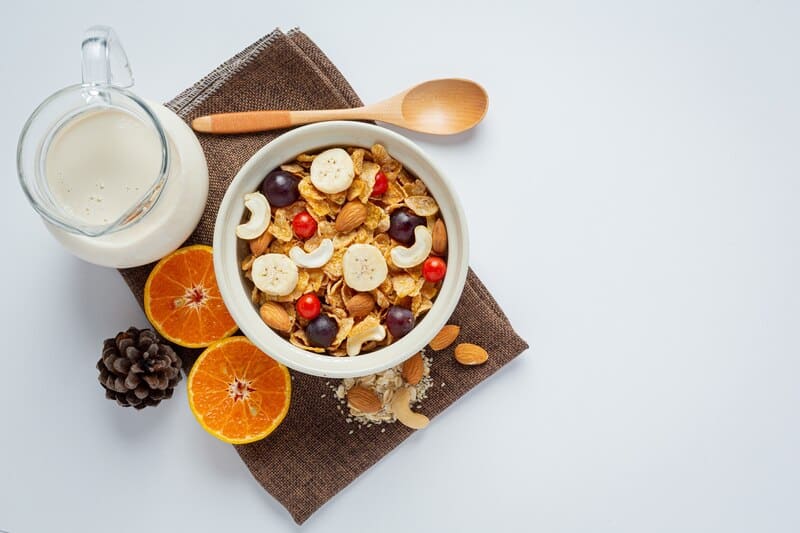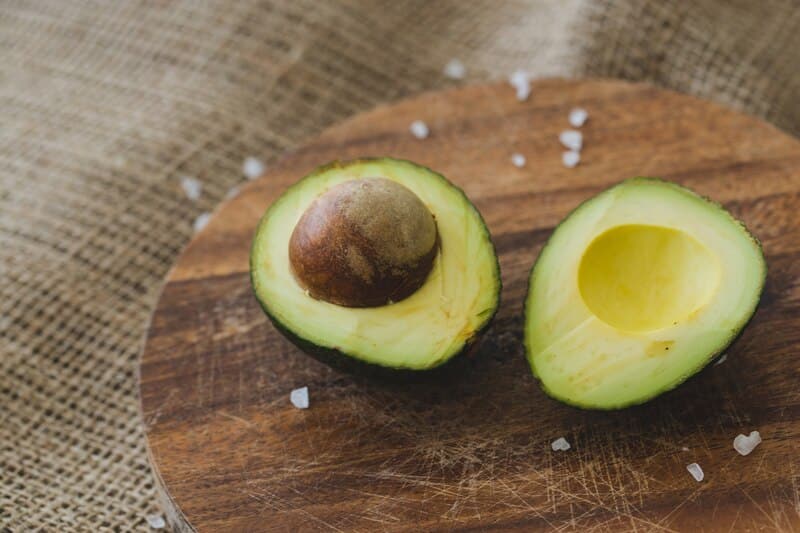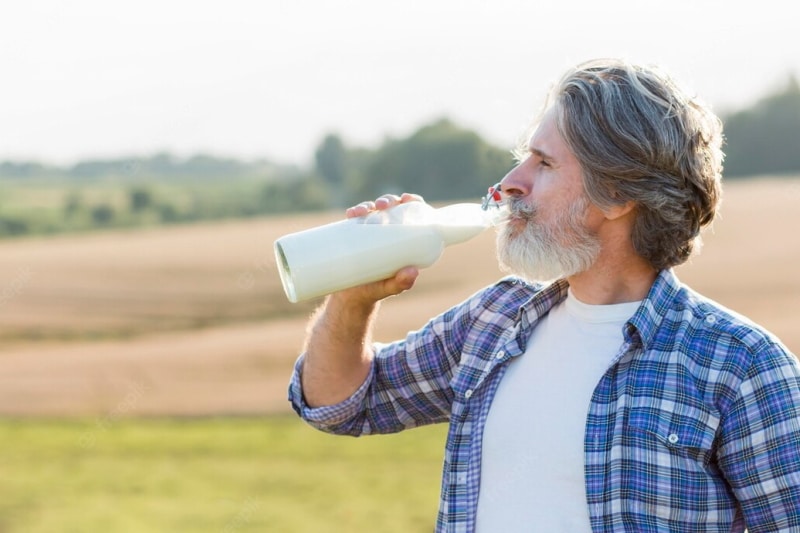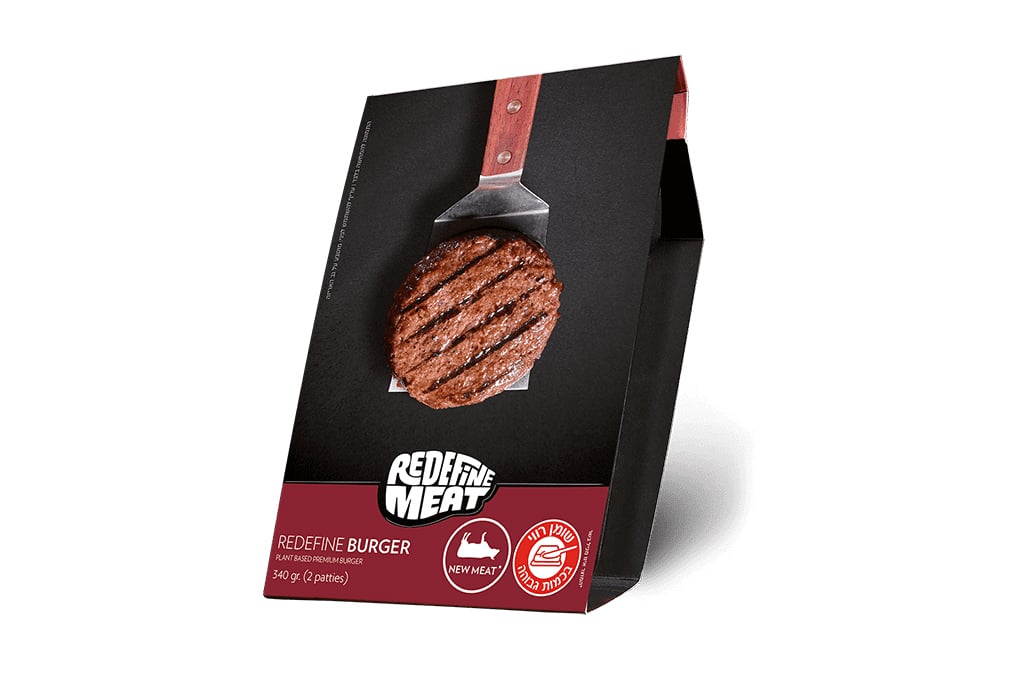Growing up in the 1990s and 2000s, it was impossible to turn on the television or open a magazine without seeing the phrase “Got milk?” Furthermore, let’s not forget the milk mustaches. The classic campaign was initially designed for the California Milk Processor Board and eventually licensed to other dairy industry companies.
Circumstances have changed, and the public’s perception of milk has become negative, today we hear that drinking cow’s milk is unnatural (particularly beyond childhood) or that milk consumption is more harmful than beneficial. However, is any of this true? Although the answer likely lies somewhere in between these two extremes, milk is probably not the health powerhouse it was previously touted to be.
“What nutrients does dairy include that no other food does? Christopher Gardner, a professor and nutrition researcher at the Stanford Prevention Research Center, says, “nothing.” “It is true that milk is the most readily available source of calcium. That is entirely accurate. However, calcium can be obtained from numerous other foods.” And while not everyone should immediately stop consuming dairy, there are hazards associated with excessive milk consumption.
What We’ve Been Told About Milk
As has been often said, milk is a good source of calcium, protein, and other minerals such as vitamin D and potassium. Who is its champion? The national government As early as the 1940s, milk was promoted as a surefire way to get vitality, health, and happiness. A Works Progress Administration-era poster commissioned by the government to promote milk depicts a white-clad, grinning pair playing tennis and golf with the phrase “Milk: For Health, Good Teeth, Vitality, Endurance, and Strong Bones.”
The government’s “My Plate” guide still prominently features dairy, in the corner above a circle neatly separated into four food groups. Even today, the U.S. Department of Agriculture (USDA) and the Department of Health and Human Services state in their dietary guidelines that dairy, particularly milk, is a vital component of daily meals. Americans are advised that consuming three glasses of milk daily is the most effective approach to achieve their calcium needs. However, the situation is a bit more convoluted than that.
Is milk unhealthy?
According to data from the United States Department of Agriculture, milk consumption has been in decline since the 1970s. However, milk remains a fixture in refrigerators across the country, and the Got Milk? ad continues to thrive. The research indicates, however, that the nutrients found in cow’s milk can be obtained from plant-based sources. Additional research suggests that milk consumption may be linked to skin issues, weakened bones, and even an increased risk of some malignancies.
Nonetheless, it is essential to acknowledge the intricacies of individual health. Major research have found links between dairy consumption and specific health hazards, but no conclusive cause-and-effect relationship has been established. VegNews is informed by Krystyn Parks, MS, RD, IBCLC.
“Because there are so many variables, it’s very difficult to do reliable nutrition research. “Food consumption is rarely the main difference between two groups of people,” Parks explains. Age, sex, genetics, socioeconomic level, environment, and lifestyle factors such as smoking, drinking, and physical exercise also affect an individual’s health. “My basic attitude is that, barring allergies, there is no one food that you must have in your diet or avoid.”
However, numerous large-scale studies have found correlations between dairy and specific health hazards, and there are other reasons to avoid dairy. Ethically, vegans abstain from drinking milk because its manufacture requires the use of a cow’s body. Milk is the primary source of nutrition for a dairy cow’s newborn calves; hence, dairy cows are routinely fertilized and isolated from their calves in order to produce milk.
Dairy is also a significant contributor to global greenhouse gas emissions, mostly due to the methane produced as cows digest their food and when manure is managed. Cattle also emit carbon dioxide and nitrous oxide, but according to the Environmental Protection Agency, methane contributes 25 times more to global warming than carbon dioxide.
Reasons not to drink milk range from the ability to get essential nutrients from plants to the capability to help clear up your skin. Here are some arguments for considering a dairy-free diet.

1. Milk is not necessary for strong bones
Three nutrients often associated with bone health are present in cow’s milk: calcium, vitamin D, and phosphorus. Calcium aids in heart, muscle, and nerve function as well. Calcium cannot be produced by the body on its own, thus it must be taken from food and supplements.
According to Parks, calcium can be derived from a variety of plant-based sources. “Fortified tofu, leafy greens, walnuts, and broccoli all contain calcium. There are chia seeds, which can be utilized in numerous goods. Numerous plant-based milks and orange juice are also fortified with calcium.
Phosphorous, the second most abundant mineral in the human body, is also present in plant-based foods, such as legumes, nuts, seeds, tomatoes, cauliflower, asparagus, and whole grains such as wheat, oats, rye, and essential wheat gluten, the main component of seitan.
However, vitamin D is required for calcium and phosphorus absorption; more on this below.

2. Vitamin D can be obtained from vegan sources
Vitamin D regulates the absorption of calcium and phosphorus and contributes in the correct functioning of the immune system. Salmon, egg yolks, and cow’s milk are however not vegan sources. (Did you know? Vitamin D is not naturally present in cow’s milk. It is added.)
Vegan vitamin D options include fortified plant-based milk. Light-exposed mushrooms contain trace levels of vitamin D, however it may be less accessible than other sources. Sadly, the majority of fortified cereals include vitamin D derived from lanolin, a substance derived from sheep’s wool. The same is true for orange juice that has been strengthened.
In addition to fortified plant-based milk, vitamin D can be gained by at least 30 minutes of exposure to sunlight or vegan supplements.

3. Plant-based fats are healthier for the heart.
A diet high in full-fat dairy products may increase the risk of heart disease. A study published in the American Journal of Clinical Nutrition that tracked 43,000 men and 117,000 women for two decades examined the relationship between dairy consumption and heart disease. The data indicate that ingesting vegetable fats or polyunsaturated fats reduces the risk of heart disease more than consuming animal fats or dairy products.
“These findings show that dairy fat is not a healthy addition to our diets.” A healthy food pattern tends to be plant-based and low in saturated fat, according to the study’s principal author, Frank Hu. “Although reasonable amounts of full-fat dairy such as cheese are permissible, a healthy diet pattern is often plant-based and low in saturated fat.”
4. Lactose intolerance is more prevalent than you may realize.
It is believed that 60 to 70 percent of the global population is lactose intolerant to some degree. The symptoms of a dairy allergy include skin problems such as acne and eczema, digestive issues such as constipation and diarrhea, and breathing difficulties. When substituting plant-based milk for cow’s milk, seek for a version that has both calcium and vitamin D. Refer to our guide for a comprehensive list.

5. Giving up milk could boost skin health
According to a 2020 study published in the American Journal of Clinical Dermatology, there is evidence that consuming dairy products causes acne. Experts hypothesize that this is because whey boosts levels of insulin-like Growth Factor-1. Dairy products are also known to promote the skin disorder eczema, which is characterized by red to brownish-gray, itchy areas of skin.

6. Milk may raise the likelihood of developing some malignancies.
A causal relationship has been demonstrated between frequent dairy consumption and an increased risk of prostate cancer, the third leading cause of death among men. Additionally, research indicates that whole milk drinking increases the risk more than low-fat milk. In contrast, a plant-based diet may minimize prostate cancer risk.
A high consumption of high-fat dairy products is linked to an increased risk of ovarian cancer. It is crucial to remember, however, that a person’s cancer risk is affected by a number of factors, including genetics, environmental factors, and food.
7. It may cause bone fragility.
A Swedish study found that drinking three or more glasses of milk per day increases the risk of bone fractures. In addition, those who reported drinking a lot of milk had a higher risk of mortality, according to the study. Researchers determined that this could be an instance of reverse causation, however caution is advised when interpreting the results. According to a different study, milk consumption is not necessarily connected with a reduced risk of osteoporosis.
Does breast milk induce cancer?
There are few indications that cow’s milk may increase the risk of breast cancer. One study published in the International Journal of Epidemiology found a correlation between adult milk consumption and an increased risk of breast cancer. Another study involving 510,000 Chinese adults discovered a link between dairy consumption and breast cancer. Other studies have found a link between dairy consumption and prostate cancer; this study did not. A different study of teens showed no correlation at all. So, is milk linked to breast cancer risk at all?
“I think the real solution does lay somewhere in between,” Dana Ellis Hunnes, PhD, MPH, RD, senior clinical dietitian at UCLA medical center, and author of the book Recipe for Survival, tells VegNews. “Humans know that cow’s milk contains naturally-occurring hormones, since cows are mammals and we are mammals, and in order to produce milk, you have to be pregnant with big surges of hormones. What the jury is still somewhat out about is how much those extra hormones we drink from cows’ milk influences our cancer risk.”
In other words, it is impossible to provide a decisive “yes” or “no” response.
“Does it lead to breast cancer? Possibly not,” explains Hunnes. It is extremely difficult to determine the origin of breast cancer, although the hormones and casein in milk may be connected with enhanced tumor growth, and may therefore raise cancer risk in susceptible individuals.
According to study, a diet rich in whole fruits and vegetables may reduce the risk of developing breast cancer.








